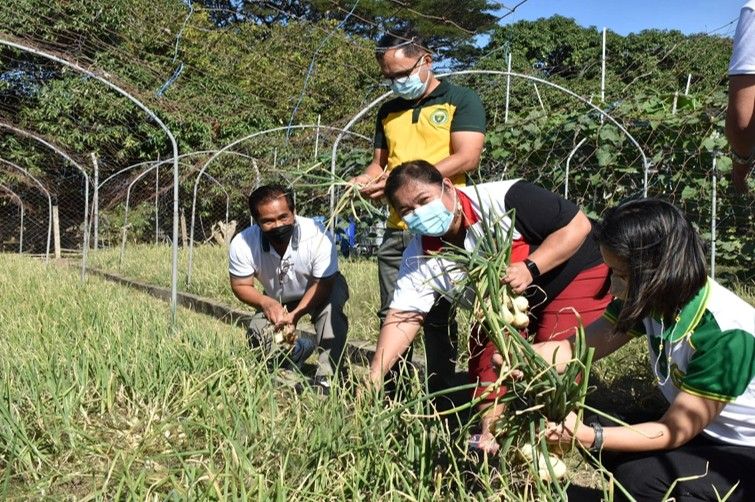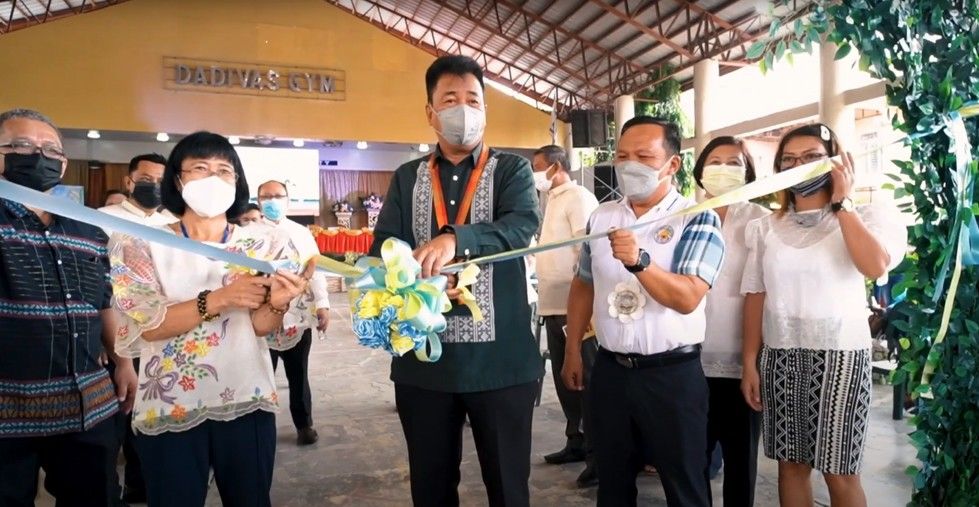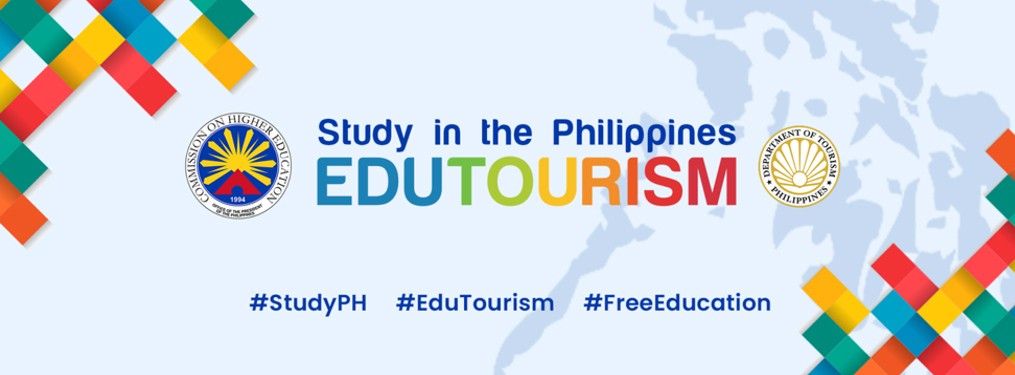StudyPH and EduTourism: Using education to drive tourism


Did you know that 40% of our travel taxes are earmarked for the Higher Education Development Fund?
Because of this, and because of the new government’s mandate to reinvigorate the tourism industry, the Commission on Higher Education (CHED) is stepping up the delivery of their Study in the Philippines Program. Also known as StudyPH, this initiative is championed by no less than CHED’s Chairman Dr. J. Prospero "Popoy" E. De Vera III and Interim Deputy Executive Director and Director for International Affairs Services Atty. Lily Freida C. Macabangun-Milla.
According to Atty. Lily, this program is vastly different from the conventional practice of developing Tourism or Hotel and Restaurant Management graduates for the travel, hospitality, and tourism industries. Rather, it entails using higher education (HE) to drive tourism by attracting foreign students to enroll in our highly competitive state universities and colleges (SUCs).

The vision for StudyPH
The Philippines as a center of education
Chair Popoy and Atty. Lily harken back to the days when the Philippines was once considered a center of education in Asia. In fact, up until the 1970s, a great number of the ASEAN professionals who went on to become experts in their respective fields studied in our SUCs.
Thus, the primary goal of StudyPH is to make the Philippines the center of quality higher education once again, especially in the ASEAN, and particularly in identified areas of excellence. These areas are currently categorized according to the following priority themes:
- Culture, Heritage and Museums (CHM) for the preservation and appreciation of participants and products of Philippine civilization;
- Agriculture, Forestry and Fishery (AFF) for promotion and development of the tourism potential of economic activities; and,
- Environment and Natural Resources (ENR) for the conservation and restoration of ecological systems.
Other niche areas being considered are those related to Health and Medicine, IT, Creative Arts, and Teacher Education.
But are we ready to compete with the rest of the world? Atty. Lily says the question is moot. “The fourth industrial revolution is already upon us. So we must be ready or risk being left behind. This includes accelerating our digital transformation.” The emphasis should therefore be on glocalization: being competitive with world standards while still being responsive to local needs and peculiarities.
But internationalization is just as crucial. Beyond just the influx of foreign students and building partnerships and linkages, it‘s important to build intercultural competence. She defines this as the capacity to respect different faiths, navigate through diverse or multicultural environments, and be truly global citizens.
Adds Atty. Lily, glocalization and internationalization are not goals but processes of change that will facilitate the improvement in leadership styles and the shifting of outdated paradigms.
Philippine SUCs as study destinations
As our SUCs continue to strengthen their respective niches, the Philippines is poised to become a sought-after study destination for foreign students. More so because of our proficiency in using English as a medium of instruction and our openness to diversity. In turn, foreign enrollment will foster greater connectivity between students, faculty, and staff in both local and international universities, communities, industries, and local and national government agencies.
Philippine SUCs as changemakers
Chair Popoy’s direction for StudyPH is clear: “Aside from transforming SUCs edutourism destinations, they must be allowed to use their trifold function of research, instruction, and extension to support the tourism industry as well as other industries within their respective communities.” This will result in improvements in innovations, policy development, constantly upskilling the workforce, especially adult learners, and greater cooperation with the local government to push their local tourism agenda.
It’s therefore important for SUCs to recognize the important role they have to play in local tourism precisely because they can mobilize their expertise in research, extension, and education in partnership with the local government and other stakeholders.
Philippine SUCs as drivers of sustainable development goals
By committing to sustainable development goals (SDGs), United Nations member countries also commit to improving the lives of people and the betterment of our planet. Chair Popoy says that SDGs are therefore a universal language among higher education institutions (HEIs).
Through StudyPH, SUCs can integrate their response to SDGs in their curriculum. Adds the chairman, “The good thing about SDGs is that you can measure success over time. With SDGs as part of the program, SUCs are able to measure their progress against these global commitments as well as gauge how they compare with their foreign counterparts, thus making internationalization all that much easier.”
But it all depends on the SDG being targeted, he continues. Chair Popoy cites a recent conference among peace advocates in General Santos, saying that the 31 HEIs in attendance discussed how to improve the peace curriculum and make it a three-unit course in the general education curriculum.
When SUCs understand the SDGs, says the chairman, they will be able to embrace them as an anchor of their educational system. This, in turn, will be instrumental in the country’s fulfillment of our commitments with the UN.
The Philippines as a laboratory for experiential learning
As StudyPH’s vision for Philippine HE grows into fruition, learning will happen on different levels and on different fronts, not just in the classroom.

This means offering up the entire country, especially the local communities where the SUCs are, as a hands-on laboratory for experiential learning. In so doing, our foreign students—including university-level enrollees, adult learners, and even mobile students who will cross enroll for just a semester or a year— will be immersed in the richness of our biodiversity and culture (We have over 110 indigenous peoples, notes Atty. Lily). But it also means allowing them to experience firsthand the challenges faced by a developing nation, such as poverty, infrastructure, and even disasters.
Best of all, because they will learn alongside our homegrown students, they will all become glocal and internationalized students who are solution seekers and change makers.
In light of this, StudyPH intends to support HEIs through capacity building and funding that will allow them to stay in stride with the international institutions. And for their part, SUCs must look beyond local communities and focus on ASEAN and the rest of the globe. This will allow them to see where they stand versus international benchmarks. This means graduating from the local mindset of licensure results, for example, and towards performance-based international metrics like research, employability, social engagement, reputation, and even overall institutional performance.
StudyPH: Making the grade
Philippine HEIs: Moving up the ranks
Atty. Lily says we’re nearly where we want to be, as shown by how our ASEAN rankings have dramatically increased in the last decade.
Ten years ago, only four HEIs from the Philippines were included in the Quacquarelli Symonds (QS) ranking of world universities. But in 2021, 14 Philippine universities made the cut.
Meanwhile, in the 2022 Times Higher Education (THE) Impact Rankings, which measures what universities have done to reach Sustainable Development Goals, 15 Philippine universities ranked among the best HEIs in the world. Our showing in the 2022 THE Impact Rankings showed a 300% increase from the five HEIs included in the previous year.
How can SUCs take part in StudyPH?
CHED’s International Affairs Services (IAS), also headed by Atty. Lily, is tasked with running the StudyPH program. Applications and project proposals from the SUCs pass through rigorous examination by an expert panel before being deliberated by the commission en banc.

Region III became StudyPH’s priority because it is considered one of the primary tourism growth areas in the country. The first project approved by CHED is the eFarm Academy of the Central Luzon State University (CLSU). This CHED-funded agro-tourism project has been running for almost five years now.
Other projects include Bulacan State University for heritage tourism, Tarlac Agricultural University for eco-tourism, and President Ramon Magsaysay State Universities for coastal tourism.
StudyPH: Why stories matter
Chair Popoy relates that his support for StudyPH is rooted in personal experience. “My wife and I love to travel, and I’ve noticed that tourist sites overseas have many stories behind them. Written stories. Stories recounted by locals, Stories available online and on social media. They help travelers understand the significance of those places.”
He laments that the Philippines has many attractions but very little information. “If you Google Marinduque, for example, the results will be mostly blogs about the beaches and the cuisine, but very little about the history, the importance of the place. So there is a dire need to produce good tourist information to attract visitors to our heritage and historical sites. We are more than just beautiful beaches and cheap food.”
“Each university, each province has their own tales that need to be told. Like Bulacan which is very historic. Or the site in Mindanao that is the first foothold of Islam in the country. But when you get to the mosque, there’s virtually no written reminder of that fact.” But through StudyPH, educational institutions can uncover and promote their community’s own stories. Chair Popoy says, HEIs should be at the core of finding these stories and producing these materials.
Listening to Chair Popoy and Atty. Lily talk about StudyPH, it’s easy to get swept up in the passion for the program’s edutourism mandate. It makes sense. It is achievable. And above all, it’s sure to make a positive impact on so many levels.
They say education opens learners to the wonders of our big, wide world, or so the adage goes. But with StudyPH, CHED will be able to bring the wider world to the Philippines and its many wonders.
--
Watch Pamilya Talk on Facebook, YouTube and Kumu (@JingCastaneda – 12:00 noon – 1:00 p.m. Monday & Wednesday). You can also follow my social media accounts: Instagram, Facebook, YouTube, Tiktok, Twitter and Kumu. Please share your stories or suggest topics at editorial@jingcastaneda.ph.



















